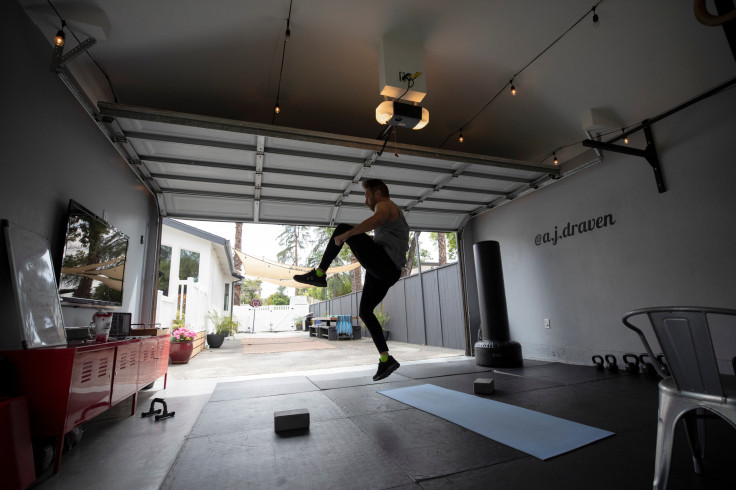Healthcare workers can benefit from exercise apps to improve their mental health
Research from the University of British Columbia suggests that exercise apps can reduce depressive symptoms and combat mental illness in healthcare workers.

Exercise has long been established as an effective way of improving mental health, particularly in regard to depressive symptoms.
With a wide range of gymnasiums popping up all over the city, open fields to jog around on, and various apps like Nike Training Club and Apple Fitness+, exercise has never been more accessible.
But just how effective is exercise at combating stress? Especially for healthcare workers, for instance, who have undoubtedly had to endure indefatigable stress over the last three.
According to new research from the University of British Columbia (UBC), simple home workouts by using exercise apps can effectively reduce depressive symptoms and could be a major tool in combating mental illness amongst those in the health sector.
While previous studies have shown that exercise reduces depression, researchers said exercise wasn't an approach found in the initiatives offered to healthcare staff during the pandemic.
Lead author and associate professor of kinesiology at UBC, Dr Eli Puterman, said: "Our study provides the first evidence that working out at home using exercise apps, even with limited equipment, can significantly enhance the mental health of healthcare workers."
"The past three years have been incredibly difficult for healthcare workers," Dr Puterman continued, respectively.
In the published study, UBC researchers divided 288 participants into either a wait-listed control group or an exercise group that was given free access to a large suite of home exercise apps.
With yoga, cardio and strength training at their disposal, the participants were asked to aim for at least 80 minutes of moderate-to-intense exercise per week over a span of 12 weeks.
According to Dr Vincent Gosselin-Boucher, first author and postdoctoral fellow at UBC, as the study progressed, the exercise group reported significantly lower levels of depressive symptoms compared to the control group.
These positive effects were most pronounced among the participants who completed an average of 80 minutes of exercise per week as instructed.
In addition to measuring the depressive symptoms, the researchers also examined burnout symptoms and sick days over the two-week period prior to the beginning of their participation in the study. It should also be worth noting that the exercise apps tracked their workout progress.
The researchers ultimately found that exercise had improved two facets of burnout – cynicism and emotional exhaustion. The exercise group also reported fewer sick days than the control group.
However, the study found that the most prominent challenge was a matter of getting participants to stick to the programme.
For example, between week two and week twelve, adherence to the recommended 80 minutes of exercise per week dropped from 54 per cent to 23 per cent.
The researchers at UBC plan, for future studies, to explore whether providing motivational support (i.e. fitness coaches) would nurture the exercise habit.
"We also hope to do longer-term trials to focus on the broader mental, physical and economic impacts of this type of intervention," said Dr Puterman.
Concluding the study, Dr Puterman greatly encouraged all healthcare institutions to consider ways of supporting healthcare workers to be more physically active, such as offering walk breaks at work, free gym memberships, or even staff exercise rooms in hospitals.
© Copyright IBTimes 2025. All rights reserved.






















